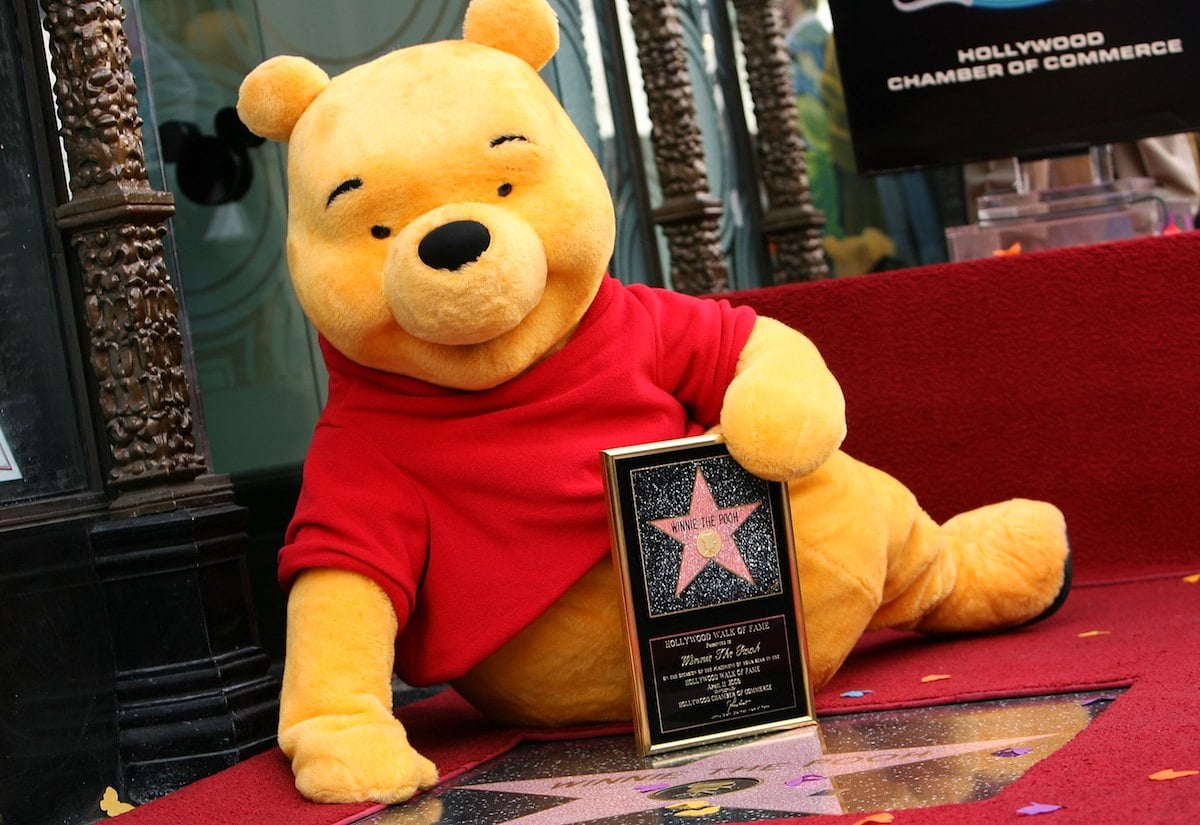‘Winnie the Pooh’ Got Banned In China After Trolls Compared Sweet Bear to President Xi Jinping
Millions of children grew up watching Winnie the Pooh on TV, navigating the forest with his friends Piglet, Eeyore, and Tigger. The tubby little bear, always ready for a pot of “hunny” and a nap, doesn’t seem like he’d offend anyone. But Winnie the Pooh is blocked in China. That’s right. Good ole Pooh Bear’s image is used by Chinese bloggers to reference their leader, Xi Jinping, and the government isn’t having it.
How Pooh Bear got his start

Before becoming a regular Disney franchise, Winnie the Pooh was a collection of stories by A.A. Milne. The first collection came out in 1926. The characters in the story were based on Milne’s son’s toys.
His son, Christopher Robin was the inspiration for the same-named character in the books. According to History, the real Christopher Robin changed his teddy bear’s name from Edward to Winnie the Pooh after regularly visiting Winnie the black bear at the London Zoo.
Winnie the Pooh’s appeal increased dramatically when Disney purchased the character rights in a 1966 licensing deal. Movies, TV series and specials would follow over the next 40 years.
The show centers around Winnie the Pooh, a portly, slow-witted, but loveable bear that always ends up in sticky situations. Lucky for him, Pooh has an eccentric but caring group of friends that live near him in the Hundred Acre Woods. Together, the group ends up going on plenty of wild adventures.
The Milne family had a complicated relationship with the books
The success of the books didn’t exactly thrill A.A. Milne. Over the span of his career, he wrote novels, nonfiction, short stories, and an abundance of plays. But he was always known for his Winnie-the-Pooh books. He stopped writing them when the public’s interest in his son went overboard.
According to People Magazine, Milne wrote, “I feel that the legal Christopher Robin has already had more publicity than I want for him, I do not want C.R. Milne to ever wish that his name were Charles Robert.”
The real Christopher Robin initially enjoyed his newfound fame, but it didn’t last. After being relentlessly teased in boarding school regarding his affiliation with the kid’s books, his joy turned to anger with his father.
The younger Milne explained his father, “had got where he was by climbing on my infant shoulders, that he had filched from me my good name and had left me with nothing but the empty fame of being his son.”
Their relationship never really recovered with Christopher Robin rarely seeing his father before his death in 1956. He was also estranged from his mother as well, only seeing her once in a handful of years before she died.
Why did China ban Winnie the Pooh?
Seems like Winnie the Pooh can’t catch a break — the author wasn’t too fond of the series, the original Christopher Robin resented it, and now China? According to The BBC, the plump, dimwitted bear is often used to mock Chinese President Xi Jinping.
Memes of Jinping walking with former President Obama and Japanese Prime Minister Shinzo Abe caught fire. In all the memes, bloggers depicted Jinping as the lovable orange bear, but Chinese higher-ups aren’t laughing. In fact, they’ve blocked the images and Chinese names for Pooh on social media sites.
However, according to Mel Magazine, it isn’t a total ban. China still manufactures Winnie the Pooh merchandise, and Shanghai even has a Disney Store there.
There’s still plenty of Pooh merchandise to buy at the store. So while the government might not want bloggers and others to compare their leader to a fictional bear, it seems like they don’t mind selling the merch to fans.


